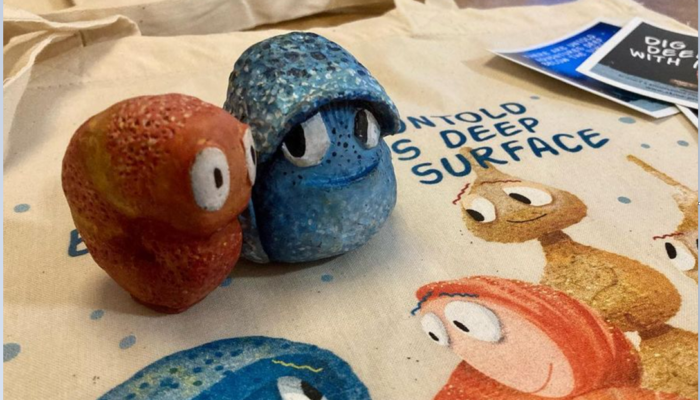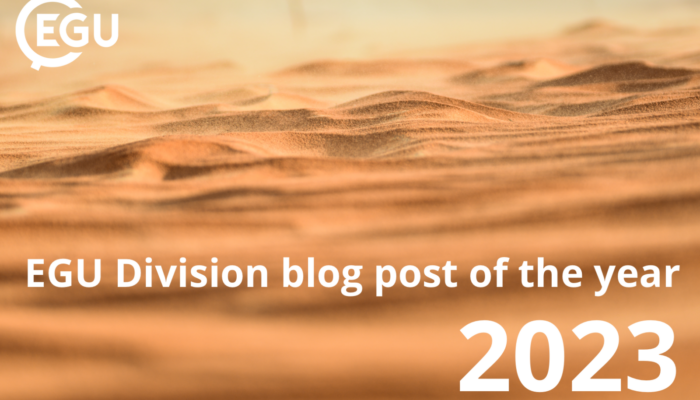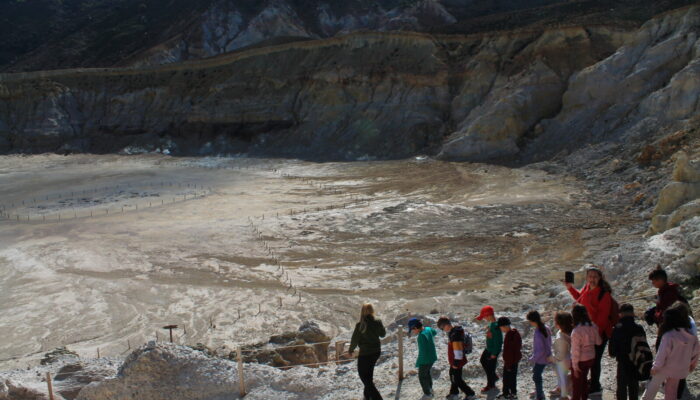This week – on 24 January – the world observed the International Day of Education. At EGU, it felt like the perfect time for us to explore the intersection of science and art, and how they can be used in creative ways to educate and inform people regardless of their age and background. I spoke to Heike Jane Zimmermann who is an illustrator and sculptor with a particular passion for eco ...[Read More]
Are you ready to vote for your favourite Division blog of 2023?
Our EGU blogging team has had a fantastic 2023 posting across our official blog, GeoLog and the division blogs. With the Near Year now officially upon us, you may know that we like to pause and reflect on our blogging efforts of the year gone by! Much like previous years, we saw yet again an impressive and insightful collection of blog posts throughout 2023. Most of our readers appreciate EGU’s bl ...[Read More]
Can anyone engage in geoscience outreach or does it take certain skills?
On 20 October 2023, a team of geoscientists will host EGU’s Geoscience Day in Santorini and Nisyros (Greece) with a diverse audience: 60 young students from Nisyros Elementary School, 120 students from the Vocational High School of Santorini, educators, local journalists and representatives of the tourism industry. With such a mixed group of attendees, one might expect unique challenges that ...[Read More]
GeoPolicy: Reflecting on science advice as shown in the 2019 Chernobyl series
The HBO and Sky UK television series Chernobyl is a historical drama that explores the events leading up to and following the 1986 Chernobyl nuclear disaster in Pripyat Ukraine. Not only does this series focus on one of the worst nuclear accidents in history, but also on the challenges and successes of one of the lead scientists involved in communicating the scientific evidence to key decision-mak ...[Read More]




